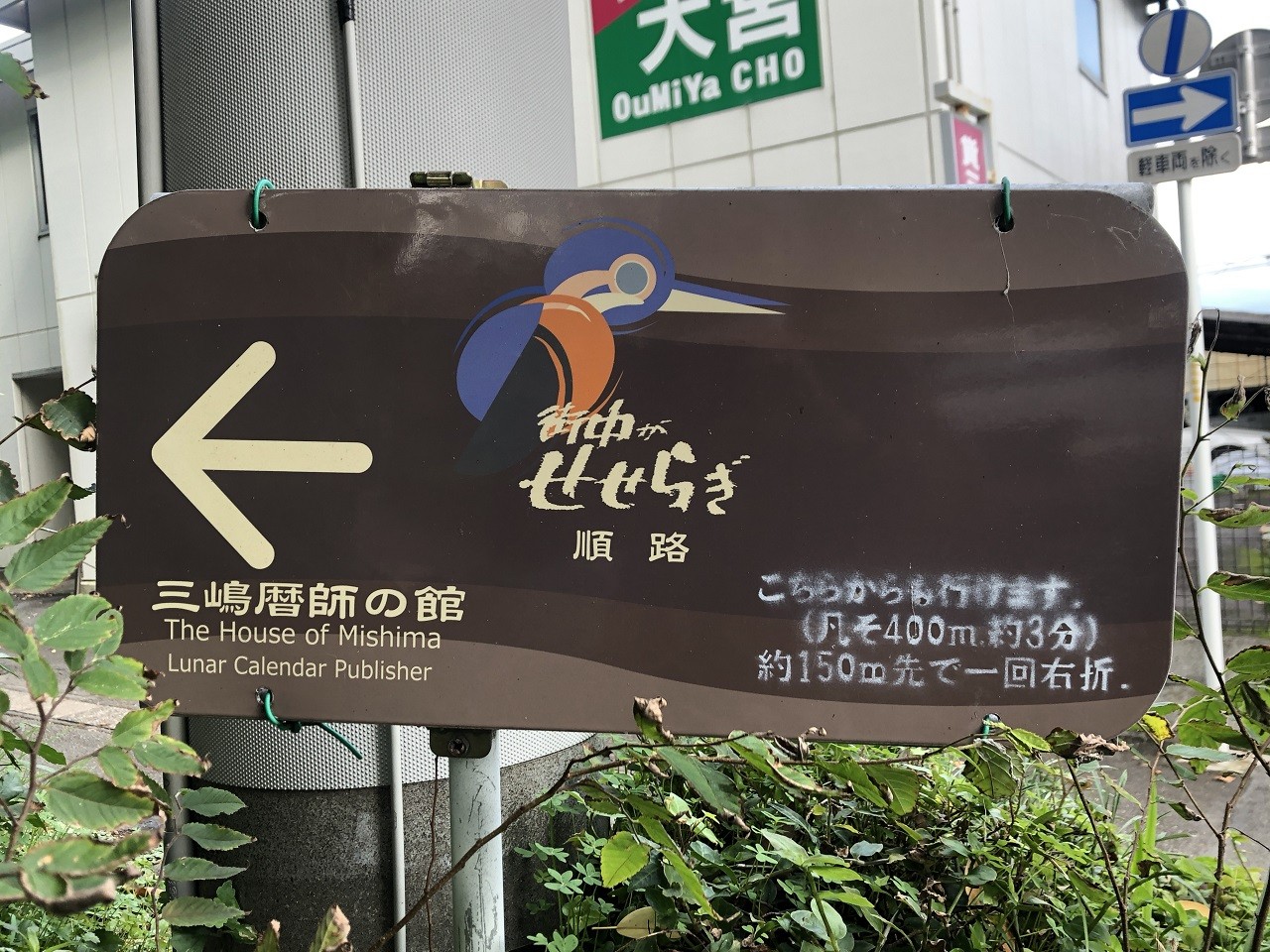(2) Mishima Taisha Shrine ②

Seseragi Walking route / (D) Mishima Taisha Shrine Area
Recommended Spots Nearby
Old Kamakura Road

The “Kamakura Kodo” is a road that was developed to connect Kyoto and Kamakura when "Minamoto no Yoritomo" started Japan’s first Shogunate regime in Kamakura (Kamakura Shogunate), and it became the essential road for east-west traffic.
House of Mishima Lunar Calendar Publisher

The “House of Mishima Lunar Calendar Publisher” is a small museum that introduces the “Mishima-goyami calendar” that is a Japan’s oldest calendar as a printed calendar with kana characters.
It is located 300 m east of the Mishima Taisha Shrine.
Riverside’s Literature Monuments (Mizukami-dori Road)

On the Mizukami-dori Street along the Sakuragawa River from Mishima Station to Mishima Taisha Shrine, there are 12 monuments of literary figures related to Mishima city, including the world-famous writers such as Dazai Osamu and Wakayama Bokusui.
Yusenji Temple

Yusenji Temple was founded in 1568, with its precincts built on the ruins of an ancient great temple called Daikoji Temple, which itself was built during the Hakuho era (from the late 7th century until the beginning of the 8th century).
The ruins of "Toiyaba (Administration office in Edo period)"

Mishima town flourished as the 11th post town on the “Tokaido road” that was the most important of the Five Routes of the Edo period in Japan, connecting Kyoto to Edo (Tokyo).
Back to "Mishima City"


